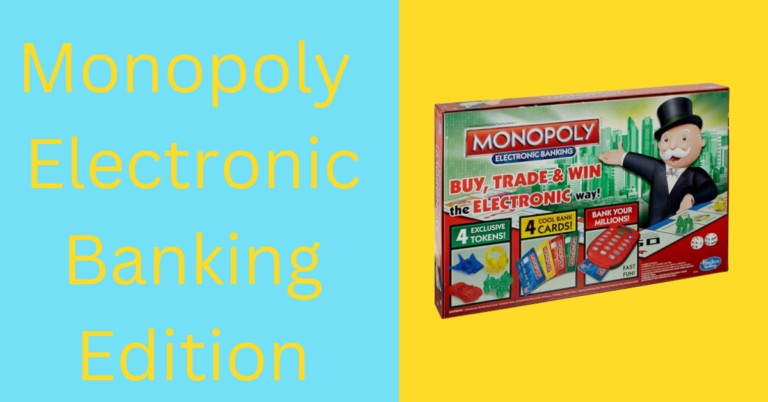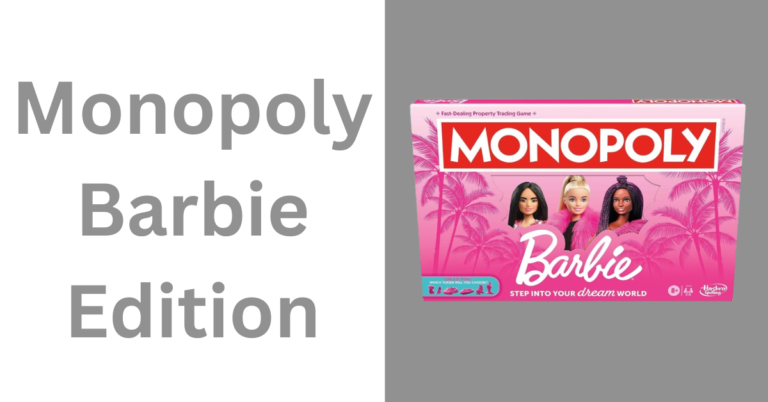Monopoly Rules – Setup, Types of Rules, and How to Win?
Monopoly, the iconic board game that has graced family game nights for generations, never fails to bring excitement, strategy, and a touch of competitive spirit. With its colorful properties, cunning chance cards, and the thrill of building an empire, Monopoly is a game that transcends ages and eras. Whether you’re a seasoned real estate tycoon or a newcomer eager to roll the dice, understanding the rules is key to mastering this classic game.
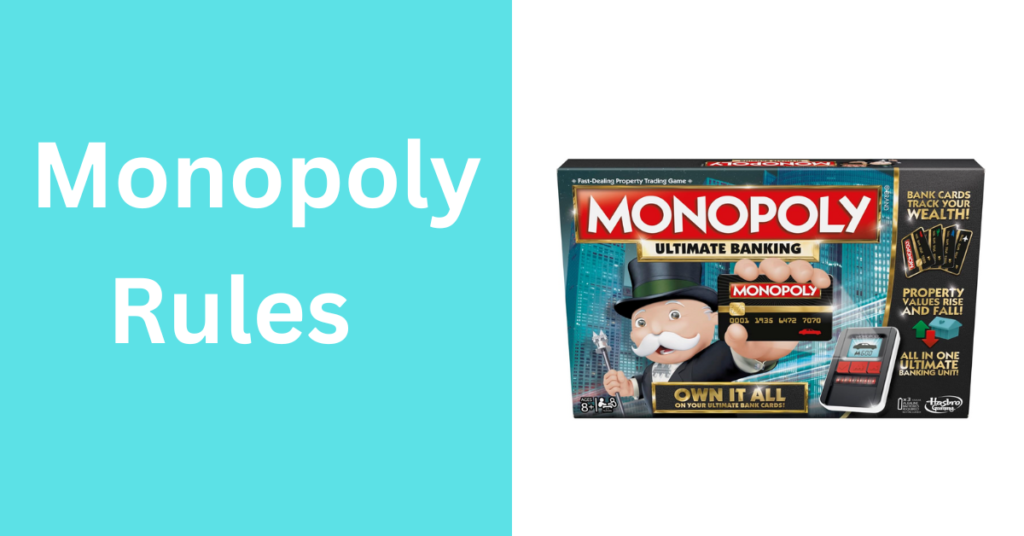
Setting Up the Board
To begin, lay the board on a flat surface where all players can see it clearly. Each player picks a token and places it in the “GO” space. Shuffle the Chance and Community Chest cards and put them face down in their designated areas on the board. Distribute $1,500 in starting money to each player: two $500 bills, four $100 bills, one $50 bill, one $20 bill, two $10 bills, one $5 bill, and five $1 bills. The banker, responsible for the bank’s money and properties, will handle this distribution.
Game Objective
The main goal in Monopoly is to bankrupt all your opponents. This is achieved by acquiring properties, developing them with houses and hotels, and collecting rent from other players. The last player remaining with money when all others have gone bankrupt wins the game.

Gameplay Mechanics
- Turns and Movement: Players take turns in a clockwise direction, rolling two six-sided dice and moving their token to the corresponding number of spaces. After moving, players may buy unowned properties, pay rent, draw a Chance or Community Chest card, or perform other actions based on where they land.
- Buying Properties: When you land on an unowned property, you may buy it for the price listed on the board. If you decide not to buy it, the property goes up for auction, and any player can bid on it.
- Paying Rent: When you land on a property owned by another player, you must pay rent. The amount depends on the property’s development level—whether it has no houses, one to four houses, or a hotel.
Special Spaces
- Chance and Community Chest: Landing on these spaces requires you to draw a card from the respective deck. These cards can either benefit you, such as earning money or moving to a specific space or penalize you, such as paying fines or moving backward.
- Jail: You can end up in jail by landing on the “Go to Jail” space, drawing a card that sends you there, or rolling doubles three times in a row. You can get out of jail by rolling doubles, using a “Get Out of Jail Free” card or paying a $50 fine.
- Free Parking: This space is often subject to house rules, but officially it’s just a resting spot with no action required.

Monopoly empire rules
Monopoly Empire follows a similar premise to the classic game but with a modern twist: players aim to build a towering empire of iconic brands. Instead of buying properties, players acquire popular brands like Coca-Cola and Xbox, stacking billboards on their towers to increase their height.
The first player to fill their tower wins. Unlike traditional Monopolies, there are no houses or hotels; the focus is on acquiring and stacking brands to reach the top first. Players navigate the board by rolling dice and moving their tokens, landing on spaces that allow them to buy brands, collect rent, or draw Empire cards that can either help or hinder their progress.
Special spaces such as Rival Tower Tax and Empire Space add strategic elements to the game. The fast-paced nature of Monopoly Empire, combined with its brand-focused gameplay, offers a fresh and dynamic experience, making it a favorite for both new and seasoned players.
Bid rules
Monopoly Bid is a fast-paced card game variation of the classic Monopoly, centered around property bidding and strategic card play. In this version, players aim to collect three complete property sets to win the game.
Each player starts with a hand of action cards and money cards. During their turn, they draw a card and then use their money cards to bid on properties that are up for auction. Players must decide how much to bid based on their money cards and the potential value of the property to their collection.
Deal rules
Monopoly Deal is a fast-paced card game derived from the classic Monopoly board game, designed to be played in about 15-20 minutes. The primary objective is to be the first player to collect three complete property sets of different colors. The game consists of various cards, including Property cards, Money cards, and Action cards. Players start with five cards in hand and draw two cards at the beginning of their turn.
They can play up to three cards per turn, using them to build their property sets, charge other players rent or perform special actions such as forcing trades or stealing property. A key aspect of Monopoly Deal is the strategic use of Action cards, which can significantly impact the game. For instance, the “Deal Breaker” card allows a player to steal a complete property set from another player, while the “Just Say No” card can negate an opponent’s action.
Money cards are used to pay rent or fulfill other financial obligations imposed by Action cards. Managing one’s hand effectively, balancing between acquiring properties and defending against opponents’ moves, is crucial for success. The dynamic interactions and quick pace make Monopoly Deal a highly engaging and competitive card game.
Auction rules
In Monopoly, when a player lands on an unowned property and chooses not to buy it, the property is auctioned. All players, including the ones who declined the purchase, can participate. The auction starts with an opening bid suggested by any player, and bidding continues until no higher offers are made.
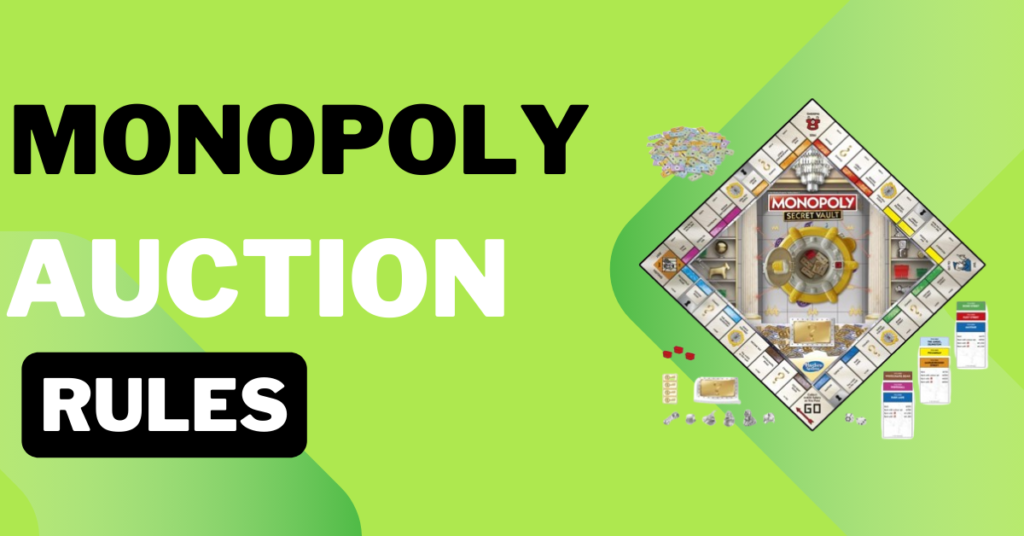
The highest bidder pays the bank the final bid amount and wins the property. This rule ensures properties are bought, keeping the game competitive. Effective bidding can disrupt others’ plans, especially if they aim to complete a property set.
Mortgage rules
In Monopoly, players can mortgage their properties to get cash. Mortgaging gives half the property’s purchase price from the bank, but the property can’t collect rent while mortgaged. Players must sell houses and hotels on mortgaged properties back to the bank.
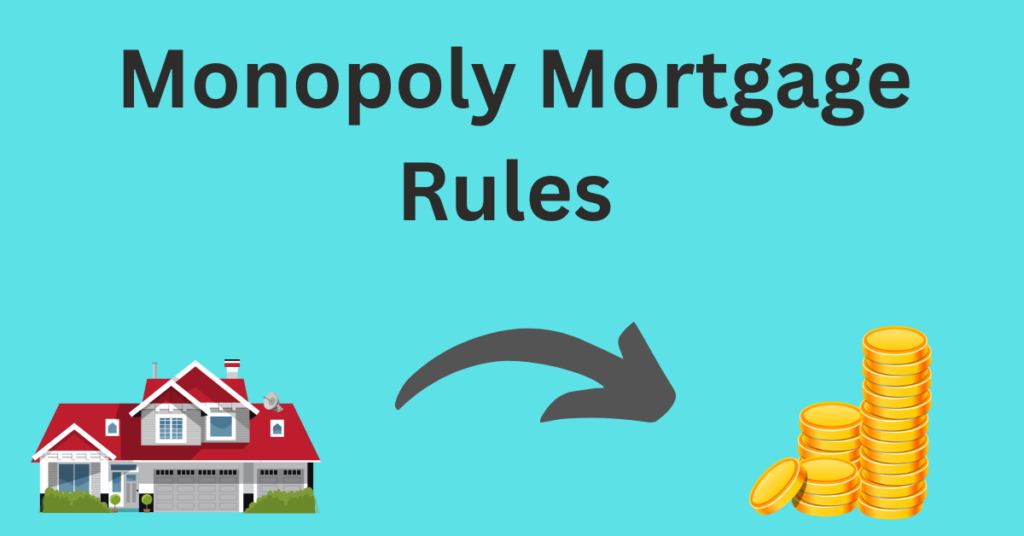
To lift the mortgage, they pay the mortgage value plus 10% interest. Mortgaging can provide needed funds but halts property income, requiring careful strategy to balance immediate needs and long-term goals in the game.
Jail rules
In Monopoly, when a player lands on the “Go to Jail” space or draws a card that directs them there, they are immediately sent to jail. While in jail, players can still collect rent, manage their properties, and participate in auctions.

However, they cannot move around the board or collect $200 for passing Go. To leave jail, players have three options: paying a $50 fine before their next dice roll, using a “Get Out of Jail Free” card, or rolling doubles on any of their next three turns. Failing to roll doubles by the third turn requires paying the fine and proceeding with the dice roll.
House rules
Monopoly house rules refer to variations or additions that players agree upon to customize their gameplay experience beyond the official rules. These can include adjustments to starting money, auction procedures, or even introducing new penalties or rewards for landing on specific spaces. House rules often aim to speed up the game, add excitement, or balance perceived unfair advantages.

Common examples include free parking money bonuses, modified rent calculations, or alternative ways to handle properties and trading. While house rules can enhance enjoyment and adapt the game to players’ preferences, they can also lead to disputes if not agreed upon clearly beforehand. Clarifying and documenting house rules before starting the game helps ensure everyone has a shared understanding and can enjoy the game smoothly.
What are the monopoly rules to get out of jail?
In Monopoly, there are three ways to get out of jail: paying a $50 fine before rolling the dice on your next turn, using a “Get Out of Jail Free” card, or rolling doubles on any of your next three turns. If you fail to roll doubles by your third turn, you must pay the fine and then move according to your dice roll.
What are the monopoly rules for money in the start of game?
At the start of a Monopoly game, each player receives a set amount of money. Traditionally, this is $1500, consisting of two $500 bills, four $100 bills, one $50 bill, one $20 bill, two $10 bills, one $5 bill, and five $1 bills. This starting capital allows players to begin purchasing properties, paying rent, and engaging in auctions and other transactions to build their wealth and monopolize the board.
What are monopoly rules for buying properties?
Monopoly rules for buying properties involve players purchasing unowned properties they land on during their turn. If they choose not to buy a property they land on, it must be auctioned off to the highest bidder among all players. Properties can be bought at their listed prices, and once owned, players can develop them by buying houses and hotels to increase rent payments from opponents who land on those spaces.
When did monopoly rules change?
Monopoly rules have evolved over time with various editions and adaptations, but significant changes to the core rules are less frequent. The game’s foundational rules regarding property acquisition, money management, and gameplay mechanics have remained largely consistent since its inception in the early 20th century.
Understanding the rules of Monopoly is essential for mastering the game’s strategic depth and enjoying its competitive dynamics. From navigating the intricacies of property acquisition and development to managing finances and leveraging chance occurrences like jail and community cards, Monopoly rules provide a framework for both tactical decision-making and negotiation skills.


